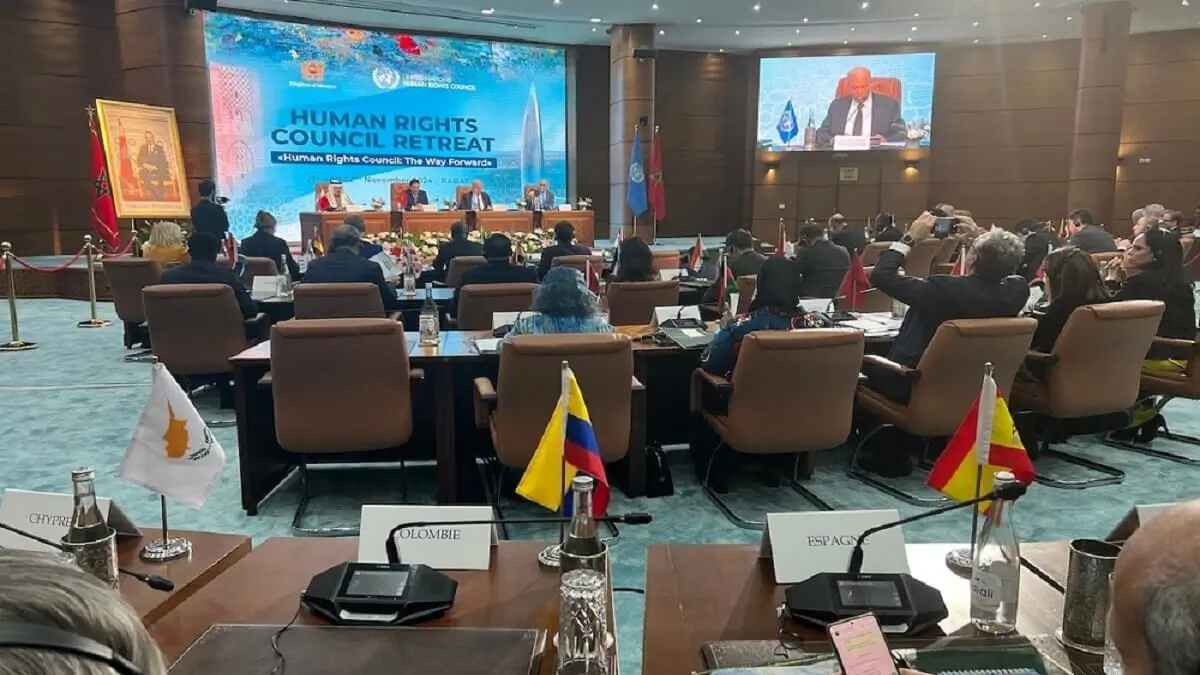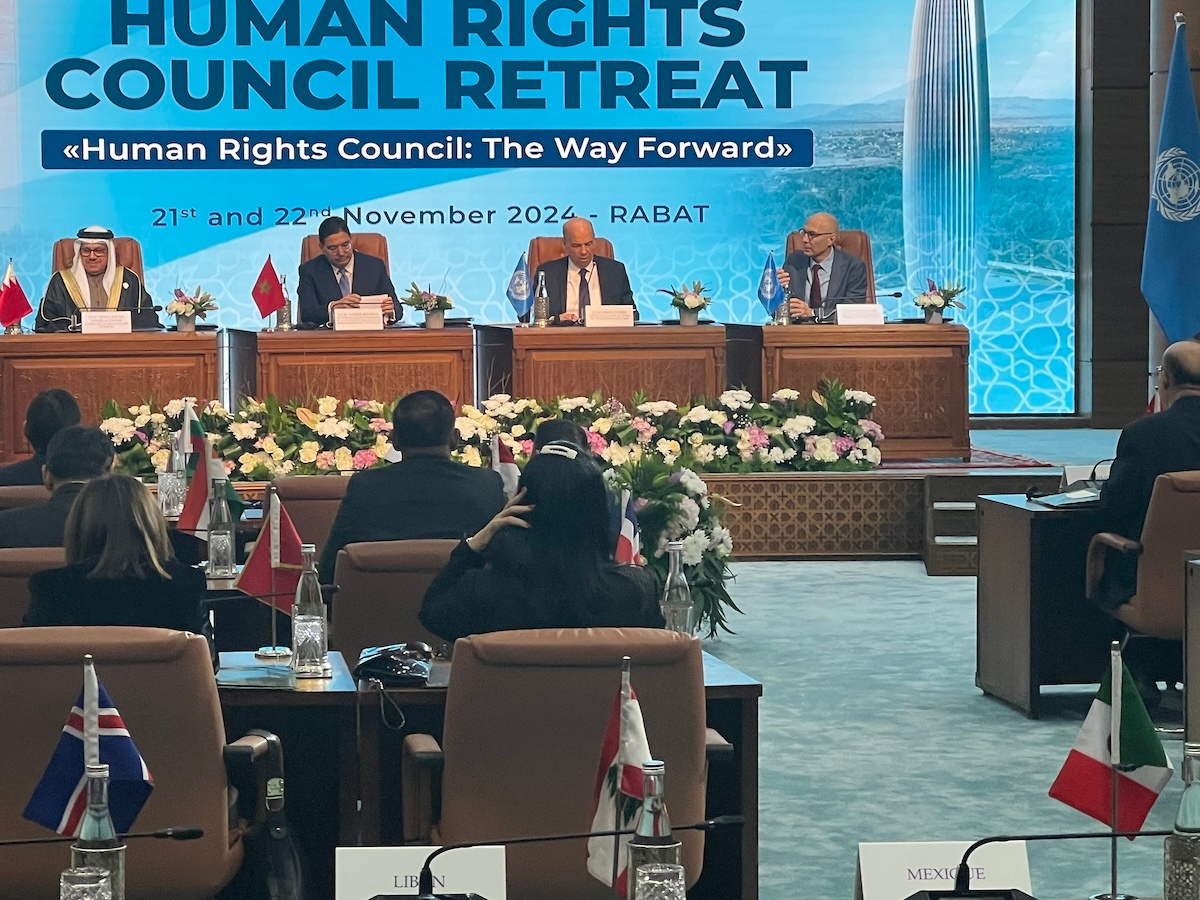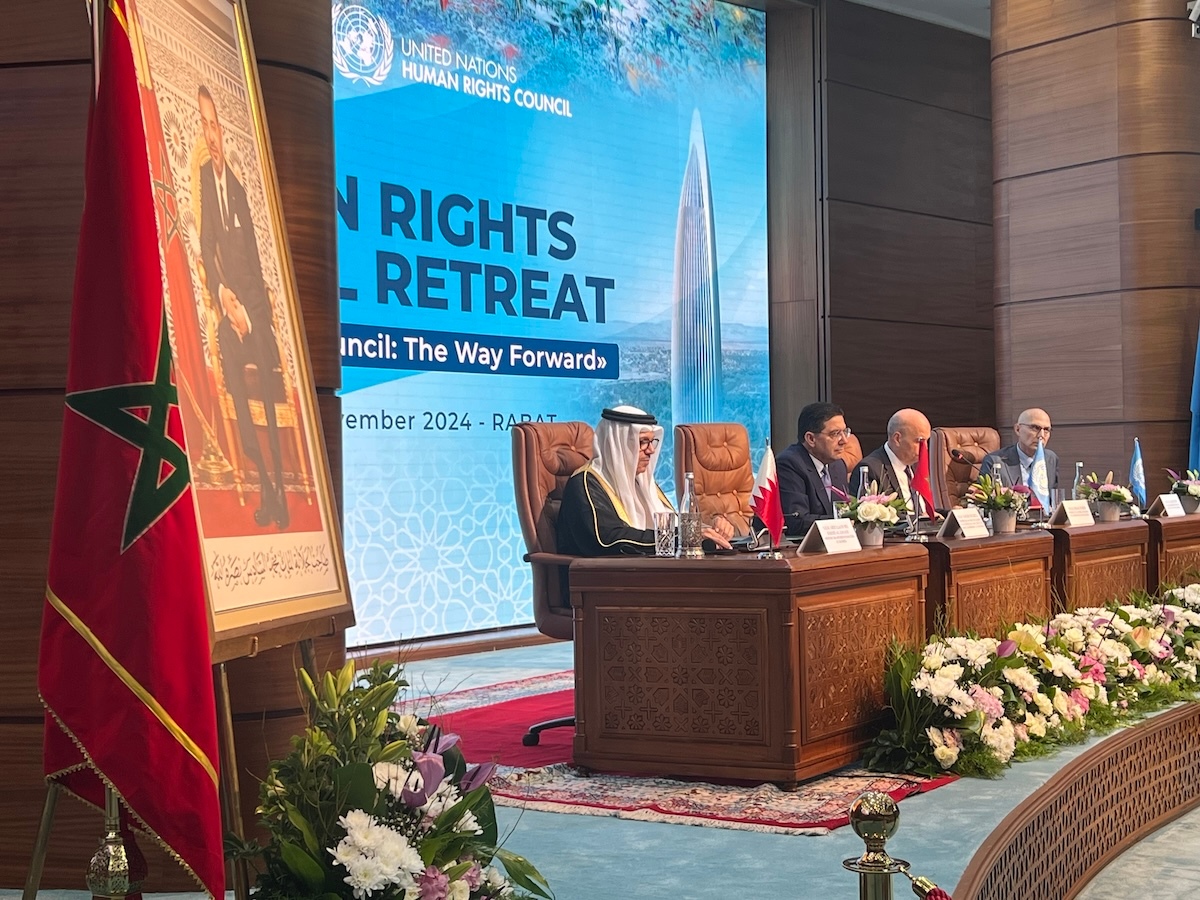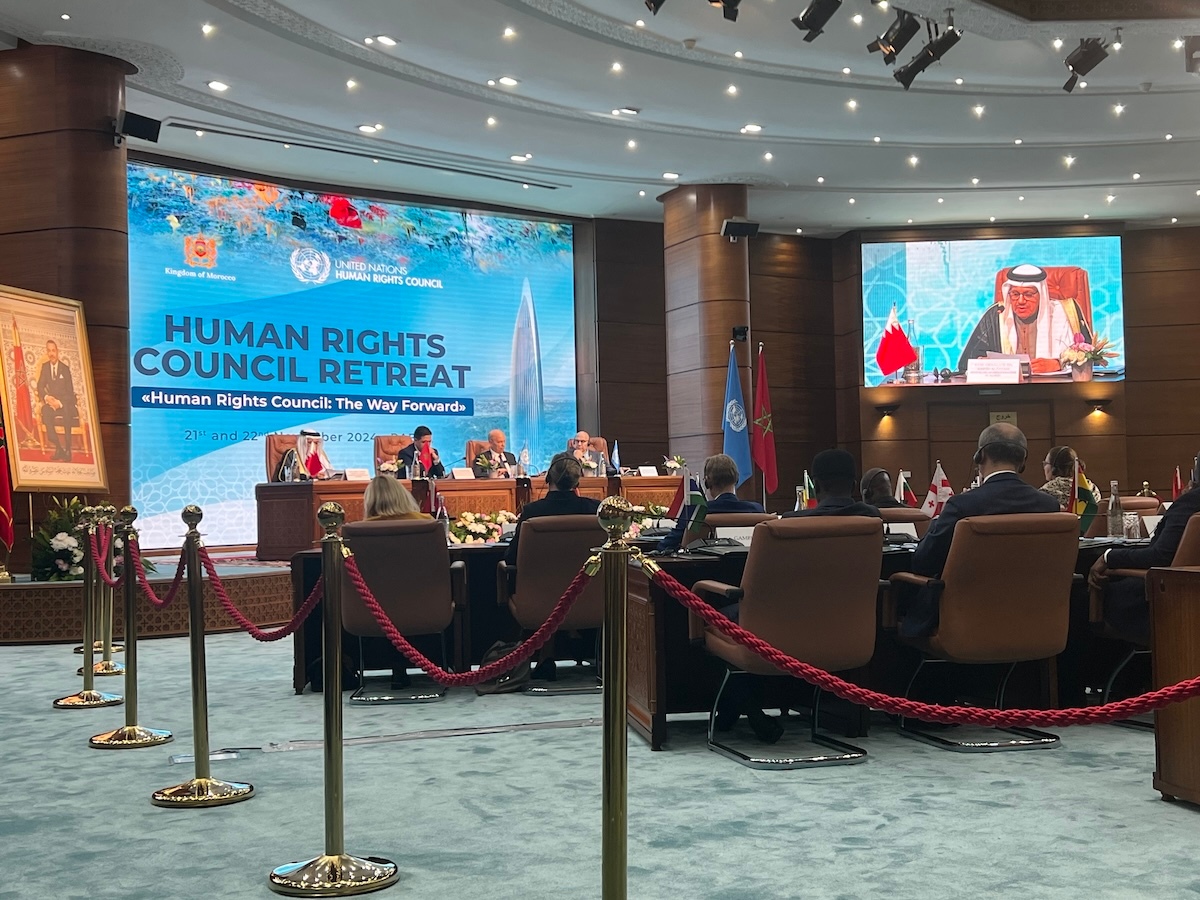Zniber: The right to development is the foundation of human rights

- The right to development: key to the preservation of human rights
- Bahrain and UN commend Morocco's leadership in promoting human rights
In the framework of the meetings that took place on the second day of the UN Human Rights Council Retreat on November 22 in Rabat, participants discussed the three most important themes for the Council:
- Assessing the main achievements and challenges the council has faced since its creation in 2006.
- Strengthening and improving the efficiency and effectiveness of the council.
- Improving relations between the Council and the United Nations system, particularly in New York.
Throughout these meetings, the Ambassador President of the Human Rights Council has reiterated the importance of working on the right to development as an influential factor in the Council's path towards broader protection and promotion of human rights.

The right to development: key to the preservation of human rights
Ambassador Omar Zniber, President of the UN Human Rights Council, stated that “development is the foundation of human rights, and working on the prosperity of countries is the solution that will ensure the preservation of other economic, social and cultural rights of populations.”
“The Council must take this right into account as a priority in its mission to defend and promote human rights,” said Zniber, insisting on ‘strengthening relations between Geneva and New York because coordination is very important for the Council, as is opening up to other international organizations for better governance of these international entities’.
“In addition to building bridges of coordination and cooperation with all international organizations dealing with new technologies, for a better functioning of the mechanisms, the UNHRC has to rely on the international financial institutions that play a key role in facilitating access to financing,” explained Omar Zniber.
In this regard, Zniber stressed that the Moroccan presidency of the UNHRC is making significant efforts to reform the Council's statutes in order to consolidate its capacity to adapt to the following challenges, among others:
- New technologies and artificial intelligence and their impact on human rights.
- Climate change issues and their impact on populations.
- Food security and health security in the world.
- Financing and the role of the private sector.
- The integration of civil society and academics in the work of the HRC.
- Updating the Council's working mechanisms.
- Wars and violation of basic human rights.
- Promotion of gender equality.
- Migration and vulnerability.
- Combating xenophobia, discrimination and extremism.
- Decreasing the politicization of the council's work.
- The increasing number of issues brought before the UNHRC.

Bahrain and UN commend Morocco's leadership in promoting human rights
Bahraini Foreign Minister Abdullatif Bin Rashid Al Zayani stressed the great interest and importance that the Kingdom of Morocco attaches to human rights, their promotion and reinforcement, and the dissemination of the noble values of human rights at the national and international level.
“The Moroccan presidency of the UN Human Rights Council reflects the successes achieved by the Kingdom in its active action in favor of human rights and fundamental freedoms,” Al Zayani added clarifying that ”Morocco's distinguished position and international prestige in this vital field testifies to its leadership in this field.”
The Bahraini MFA also recalled his country's achievements in this field, as well as the various bilateral and international initiatives aimed at promoting and protecting human rights.

For his part, the UN High Commissioner for Human Rights, Volker Türk, said that the HRC will play an increasingly important role in a turbulent international context.
Türk stressed that the international population and civil society can play the role of an efficient antidote in the fight against all kinds of human rights violations in the world, especially in the current international context characterized by escalating tensions due to armed conflicts and wars.
The High Commissioner recalled that the Human Rights Council is the international public space that ensures the implementation of the 2026 vision for the protection and preservation of human rights.
In this line, Volker Türk pointed out that “Morocco's presidency is a clear proof of its leadership in the promotion and defense of human rights both inside and outside the Kingdom through its continuous struggle for initiatives that protect the right to life, dignity, education, health, knowledge among others".








